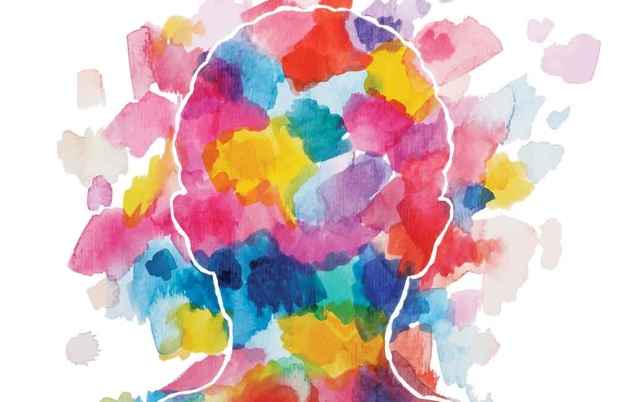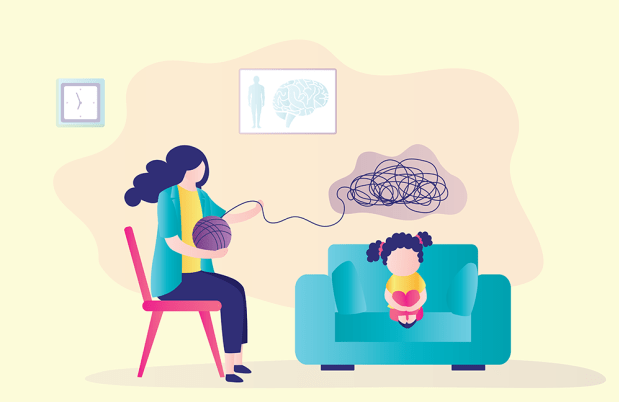My Story of OCD, as Patient—and Provider
Available with English captions and subtitles in Chinese, Hindi, and Spanish.
As Nathaniel learned when he was a teenager scrubbing his hands at 4am, his fears associated with obsessive compulsive disorder (OCD) weren’t realistic. But in the moment, it didn’t matter, because it felt like his brain was turning against him. As he grew to understand his condition, he learned that OCD doesn’t have to play by the rules of science, it takes your creativity and runs wild with it.
Audience Questions
Nathaniel Van Kirk, PhD, shares his story of diagnosis and treatment of obsessive compulsive disorder, explains its impact on his career and passions, offers advice on authenticity and disclosing mental health conditions in the workplace, and answers audience questions about ways to deal with the challenges that life throws your way.
- Can you share about your first memories of OCD starting to show itself in your life?
- Was the condition something you were open with your parents about, or did they pick up on behavior changes and talk to you about it?
- How old were you when you started going to therapy? What types of therapies were you enrolled in to help with your OCD, and did you try several before finding one that worked for you?
- Can you talk a little about ERP for real event OCD? Do you have knowledge or experience on this?
- How can a parent tell if it’s OCD, something that requires attention, or just a quirk that their kid has?
- Did you find that trying to navigate your condition led to difficulties in school? Was the school helpful in ensuring that you kept moving forward despite the challenges you were facing with OCD?
- When going through the rituals, did you have awareness that it was unusual, or did you feel that this was “how things had to be?”
- Did you talk to your friends about your condition? Looking back, would you have been more open about it?
- How did OCD impact your self-esteem as a youth and how did that get addressed in your treatment?
- Did you find activities that expanded your horizons to be helpful therapeutically, or did you find that these were dampened by your anxieties?
- What made you want to become a psychologist?
- Have you always been this open about disclosing your condition in professional settings?
- Have you had concerns that colleagues or patients view you differently since you’re open about your diagnosis?
- Is it ever hard to hold boundaries when patients are very curious about you and your story? What are some strategies or guidelines you use when it comes to disclosure during therapy?
- What tips or strategies do you use when you now face triggers?
- How have you seen ERP change because of COVID?
- Do you have any updates on research that better understands and assesses OCD symptoms and treatment?
- Do you have advice for people who are having a difficult time talking about their mental health conditions with compassion towards themselves?
The information discussed is intended to be educational and should not be used as a substitute for guidance provided by your health care provider. Please consult with your treatment team before making any changes to your care plan.
Resources
You may find this additional information useful:
- Everything You Need To Know About OCD
- Understanding OCD in Kids and Teens
- Learn More About Exposure and Response Therapy
- Deconstructing Stigma: Nathaniel’s Story
About Dr. Van Kirk
Nathaniel Van Kirk, PhD, is the coordinator of inpatient group therapy at McLean Hospital and the coordinator of clinical assessment at McLean’s OCD Institute. He is a member of the hospital’s Patient and Family Advisory Committee and Interdisciplinary Recovery Oriented Practice Committee, and also serves as the site facilitator for McLean’s Schwartz Rounds Committee.
Dr. Van Kirk’s clinical research focuses on the role of motivation across treatment and the impact of trauma on care outcomes. He also works to promote innovative methods to assess and conceptualize recovery.
Learn more about Dr. Van Kirk.
More Webinars
It’s important to think about ways to manage your mental health. McLean is committed to providing mental health and self-care resources for all who may need them. You and your family may find these strategies from McLean experts helpful to feel mentally balanced in your everyday lives.
Sign up now for the next webinar in our Mental Health Webinar Series.
Originally aired on November 30, 2021



